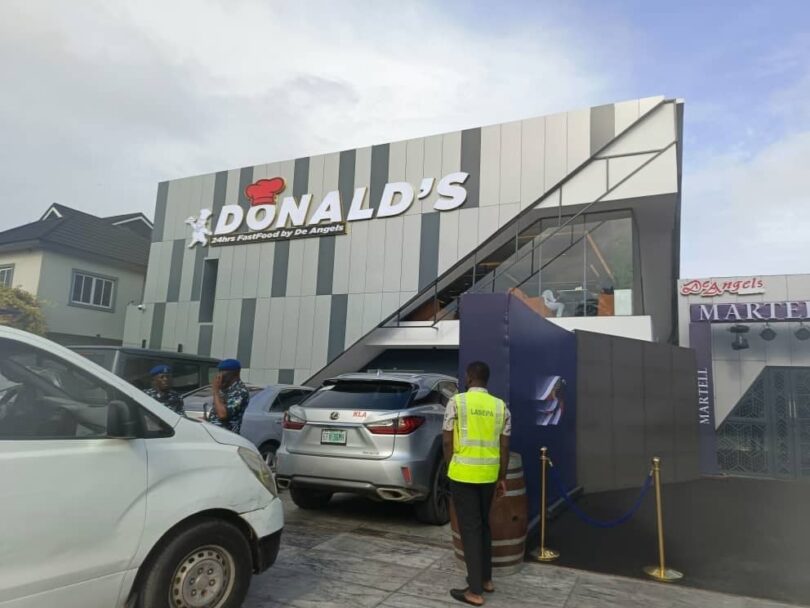The Lagos State Government has sealed Donald Fast Foods, located on Adebayo Doherty Street in Lekki Phase 1, due to noise pollution in the predominantly residential area.
The closure, carried out by the Lagos State Environmental Protection Agency (LASEPA), followed numerous complaints from residents about loud music and disturbances during late-night hours.
Owned by businessman Pascal Okechukwu, popularly known as Cubana Chief Priest, the fast food outlet also operates as De Angels Night Club, which further contributed to the disruptions.
Despite multiple warnings and abatement notices, LASEPA took decisive action on Sunday, September 15, 2024, to restore peace to the neighbourhood.
This was revealed in a post by the Lagos State Commissioner for Environment, Tokunbo Wahab, on his official X (formerly Twitter) account.
“After several warnings and abatement notices, the Lagos State Environmental Protection Agency @LasepaOfficial sealed Donald’s Fast Food on Adebayo Doherty Street, Lekki 1 over noise pollution and other environmental infractions,” Wahab’s post read.
The Commissioner also shared a video recorded by a resident at 2 a.m. that same Sunday, capturing loud music from the fast food outlet-turned-nightclub, further highlighting the disruption in the otherwise peaceful residential area.
This action by LASEPA reaffirms the Lagos State Government’s commitment to upholding environmental standards and addressing noise pollution, a growing issue in densely populated areas across the city. The agency continues to urge businesses to comply with regulations to avoid similar actions being taken against them.
The closure of Donald Fast Foods has highlighted concerns over land use planning in Lagos State, particularly in residential neighbourhoods like Lekki Phase 1.
Additionally, religious houses, clubhouses, and entertainment venues must operate in enclosed, soundproof environments with regulated speaker use, ensuring minimal disturbance to neighbouring residents.
Also, such venues are expected to limit the number of internally placed speakers to address only their congregation or clientele, without causing noise disruptions to the surrounding community.







